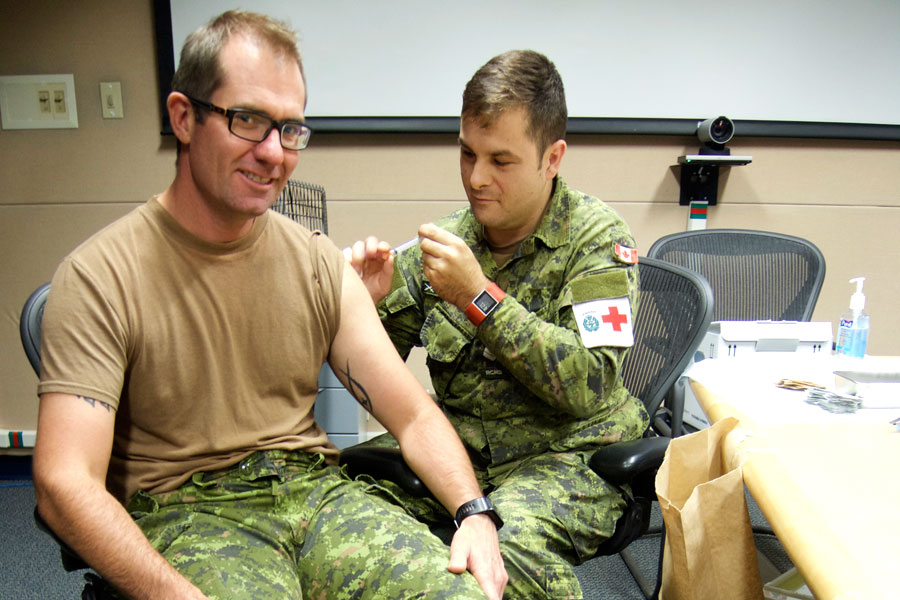Tis the season: get your flu shot
By Lookout on Oct 21, 2017 with Comments 0

Corporal Mark-Andre Bertrand-Bigras, a Medical Technician with Canadian Forces Health Services Centre (Pacific), administers a flu shot to his Commanding Officer, Lieutenant Colonel Gordon Peckham, during a flu shot clinic in Dockyard. Photo by Peter Mallett, Lookout
As flu season begins, military members are encouraged to get their flu shot to minimize the spread of the flu to co-workers and family members.
The flu vaccine available to military personnel for the 2017/18 flu season is Fluzone, an inactivated vaccine containing four different strains of the flu virus. The vaccine is available now to all military personnel at the immunization clinic or in your Integrated Health Team.
Military personnel have dynamic jobs, which can include national and international travel and living in close quarters with others. This can lead to increased exposure to viruses. We can all experience stress and overwork at times, which can also weaken our immune systems. You can even get the flu virus and not have any symptoms, but still spread it to others.
Getting vaccinated means you are much less likely to get sick this winter, which in turn means you remain an effective member of your team. It also protects others in our community who have weakened immune systems from getting the flu such as children and the elderly.
What is the flu?
The flu is an illness most commonly caused by the influenza virus types A and B. Some people get mildly ill, while others get very sick.
Flu symptoms usually include the sudden appearance of:
- high fever (39°C and above)
- cough
- muscle aches
Other common symptoms include:
- headache
- chills
- loss of appetite
- fatigue (tiredness)
- sore throat
- runny or stuffy nose
Some people, especially children, may also experience:
- a stomach ache
- diarrhea
- nausea and vomiting
It takes one to four days for flu symptoms to appear after exposure to the virus. Most people recover from the flu in seven to 10 days. Others may develop serious complications, such as pneumonia (a lung infection), and may need hospital care.
How can I avoid getting the flu?
The best way to protect yourself and others from getting the flu is by getting vaccinated. You can also protect yourself by washing your hands frequently, eating a healthy diet and getting enough rest and exercise.
Filed Under: Top Stories
About the Author:





